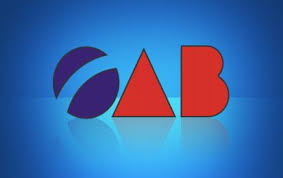Europe Nears Antitrust Deal With Google Over Web Searches
BRUSSELS — European Union regulators took another step Thursday toward reaching an antitrust settlement with Google, asking its competitors to review remedies the company has proposed to resolve concerns with its Internet search and advertising business.
The announcement by the European Commission that it had begun what is called market testing was intended to determine whether the remedies address complaints that Google favors its own products in search results.
The step is also a sign that Google, having already avoided antitrust charges in the United States, has offered concessions that are acceptable to the commission, thus allowing it to dodge a guilty verdict and a huge fine in the case.
“Now we have concrete proposals on the table which meet the necessary standards for us to submit to the public and to seek feedback on,” said Antoine Colombani, a spokesman for the E.U. competition commissioner, Joaquín Almunia.
The market testing would last for one month and a final settlement — which both sides have been working toward since shortly after the formal start of the case in November 2010 — could be agreed upon after the summer “in a best case scenario,” Mr. Colombani said.
Google still could face a fine of as much as 10 percent of its global annual sales, which were nearly $50 billion last year, if it fails to keep its promises. But the deal would allow Google to escape the type of lengthy and expensive antitrust battles that Microsoft faced in Europe over its media player and server software.
Even before it reached a deal with the commission, Google came under pressure to make further concessions. A prominent consumer group and groups with links to Microsoft condemned Google for failing to make sufficient changes, and some companies asked for a longer period of market testing.
There were also complaints that the new rules would only apply to Google’s national domains because Google users in Europe can also use the company’s global Web site that ends in .com rather than, say, .fr for France.
Google is “serving ads to European customers on the Google.com Web site, which is a strong indication that the remedies should apply to that Web site as well,” said David H. Wood, the legal counsel for Icomp, an industry group backed by Microsoft. “Circumvention is just one click away.”
The .com site has a 7 percent market share in the European Economic Area, which comprises the 27 countries of the Union as well as Iceland, Liechtenstein and Norway, and does not offer the same quality of service for European users, according to E.U. officials, who were referring to information that was supplied to them by Google.
Asked whether the current offer by Google was final, Al Verney, a spokesman for the company, said only that “we continue to work cooperatively with the commission.”
One of the centerpieces of Google’s offer to settle the case is to show links to the Web sites of competitors who offer specialized search services.
In cases where Google sells advertising next to results for specific industries like restaurants and hotels, Google would provide a menu of at least three options for non-Google search services.
The menu plan is analogous to a system Microsoft agreed to in 2009, offering users of its Windows software in Europe a ballot screen enabling them to download other Web browser software and to turn off Microsoft’s browser, Internet Explorer. Last month, the commission fined Microsoft $732 million for lapses in adhering to that settlement.
Google would use computer code to identify the most relevant rival services for a particular query. The code would then select three of those sites to be included in the menu.
Google would also label results pointing to its own services — like Google Maps, if they display local businesses — as Google properties and separate them from general search results with a box, though they would still appear in the normal list of results. The boxes would be mandatory, and probably heavily outlined, in cases where Google makes money from advertising that appears with the search results.
Google also would mark results from its own services, like weather or news, where it does not collect money from advertising. Those frames could be boxes with an outline. In areas in which all search results are paid ads, like shopping, Google will auction links to rivals.
Google is pledging to allow other sites and media outlets, like newspapers, to restrict Google from integrating their content into its own products. That measure is to address complaints by Web sites and some print publications in recent years that they virtually disappeared from Google’s search engine if they posed a competitive threat or did not comply with Google’s terms.
Google would also need to end exclusive arrangements that prevent advertisers from using competing platforms.
The agreement would be legally binding for five years, and a third party, or monitoring trustee, would be put in place to ensure compliance. Google can choose its own trustee, which would need to be approved by the commission. The commission could ultimately make the appointment if the two sides deadlock.
Some major technology rivals have demanded a longer period of market testing before the commission closes the case.
“Google has taken a year to develop the proposal released today,” said Thomas Vinje, chief lawyer for FairSearch Europe, a group of Google’s competitors that includes Microsoft, Nokia and Oracle. “We think it’s only fair that outside experts have more than a month to help the commission market test the long-lasting effects of Google’s proposal on consumers and innovation.”
Other rivals took an even tougher line, and seemed likely to demand more concessions.
“Instead of promising to end its abusive practices, Google’s proposal seems to offer a half-hearted attempt to dilute their anti-competitive effects by labeling Google’s own services and throwing in some token links to competitors’ services alongside them,” said Shivaun Raff, a co-founder of Foundem, a British comparison-shopping site that was one of the original complainants in the case. “Neither measure will make a dent in Google’s ability to hijack the traffic and revenues of its rivals.”
Monique Goyens, the director general of the European Consumers’ Organization, said leaving it up to Google to decide which three specialized services to promote in the menu “leaves too much discretion” to Google. Ms. Goyens said she was hoping “to iron out an improved end-result” in that area and in other areas of the settlement.
Any settlement can be appealed. But it is unclear whether some of them want do so at a time when FairSearch has asked the commission to start a new case against Google for the way it runs its smartphone operating system, Android.
Google also may soon face formal charges in a case concerning Motorola Mobility, a mobile phone maker owned by Google. That case follows complaints by Microsoft and Apple that they were victims of unfair licensing conditions and abusive litigation by Motorola Mobility.

















Nenhum comentário
Postar um comentário